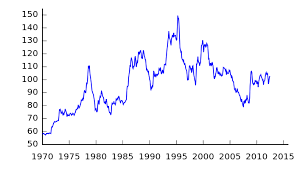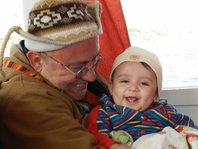 Statistics are the life's blood of our golden age of information. The data generated across industries, disciplines, and countries brings with it the mammoth task of organizing that information, making it sensible, and translating it into information useable for specific purposes. From the time I was introduced to the concepts surrounding Statistics, I have dedicated myself to its study. While classmates around me struggled with memorizing formulas, never fathoming what they represented or their applications, I grasped very quickly the importance and relevance of Statistics. I knew that while an engineer creates things that help make life easier, the statistician provides the information that makes the engineer's work possible. By being able to translate what data tells the researcher about human behavior, disease, or engineering, the applications are infinitely applicable to everything that it means to be alive right now. Nothing could be more profound. For me, there is no better truth to find.
Statistics are the life's blood of our golden age of information. The data generated across industries, disciplines, and countries brings with it the mammoth task of organizing that information, making it sensible, and translating it into information useable for specific purposes. From the time I was introduced to the concepts surrounding Statistics, I have dedicated myself to its study. While classmates around me struggled with memorizing formulas, never fathoming what they represented or their applications, I grasped very quickly the importance and relevance of Statistics. I knew that while an engineer creates things that help make life easier, the statistician provides the information that makes the engineer's work possible. By being able to translate what data tells the researcher about human behavior, disease, or engineering, the applications are infinitely applicable to everything that it means to be alive right now. Nothing could be more profound. For me, there is no better truth to find.
As an undergraduate and Statistics major in Korea University, I struggled with the more mundane required courses. I understood the importance of being a well-rounded student, but I craved more outlets for my love of Statistics, taking courses in economics, and finance while developing my English skills. To develop my English even further, I participated in XXX Academic Program in Canada, a program in which I surpassed 89 other Korean students in my English proficiency. It was during this time that I discovered and became deeply interested in computational statistics, becoming adept at handling large-scale datasets. In data mining, statistical database, multivariate statistics, computational statistics, econometric analysis classes, I became fluent in the handling of large datasets and running simulations using SAS, S-Plus, Minitab and Matlab. My zeal for my work meant that my graduate work and research could not begin soon enough and flowed directly from my undergraduate foundation work. The work was under the heading of Industrial Engineering, but primarily focused on stochastic process, data mining techniques and feature extraction methods.
It was during my Master's research, I learned some very valuable lessons, not the least of which was during my interpretation of biomedical data project, with my advisor Professor XXX. While I was to explore the non-stationary signal type data in ovarian cancer and develop feature extraction method and make a model for prediction of ovarian cancer in early stages, I lacked the requisite knowledge of biomedical data to apply the correct methodology, and, thus, my initial results were not satisfactory. From this, I learned some very important lessons: insufficient knowledge in the field and general statistical analyses under strong assumptions often cause problems in applying to various fields. Learning from this experience, I set about the project with renewed vigor, re-adjusting my approach. Still there were more lessons to be learned, particularly that methods adopted from another field of study such as wavelet transform can be more suitable for the data that do not satisfy strong assumptions. Data exploration was done by careful examination of peaks of signal in time domain and wavelet coefficients in frequency domain. Large signal type and non-stationary data sets are wavelets transformed so that distinct features of the data are extracted in wavelet domain rather than time domain. The application of my wavelet-based feature selection method to a mass spectrometry data set for ovarian cancer diagnosis resulted in nearly 100% classification accuracy when statistical classification methods were employed. With this research project, I won Master's theses competition and published my paper in the Journal of Korean Institute of Industrial Engineers.
While the domain of my professional career has been national defense and security issues, the work has always firmly incorporated statistical research. As a research analyst, I participated in several ROK government sponsored defense modeling and simulation projects. Often I cooperated with domestic and international organization including XXXs. The work that I have been involved in with the XXX Institute of Defense Analysis, utilized a simulation based acquisition package called Synthetic Theater Operations Research Model, a package that is based on operations research (OR), with methodologies such as linear programming, scheduling, transportation problem, and stochastic simulation. While XXX has given me an excellent education in terms of being an effective researcher, I feel I will quickly exhaust every possible avenue of promotion and challenge at my current level of education. More than this, though, I feel motivated to return to the academic world as I feel I have so much more to offer.
CMU will enable me to fill in the gaps remaining in my Statistics education, the remaining pieces of the puzzle for developing statistical models or methods to bring valuable quantitative information to light out of the vast expanses of raw data. The Department of Statistics focuses on computational statistics, non-stationary data, Bayesian statistics or machine learning, and Cross-Disciplinary Research that is intrinsic to my desire to study with XXX above any other institution. XXX strikes a critical balance between theoretical and applied Statistics that I feel makes for a more well-rounded and relevant Statistician, and more applicable to real world situations. Adding to the attraction to XXX, there is the ability to study computational statistics in much greater depth with the University having the finest Computer Science and Statistics department of any school in America.
Moreover, XXX provides many opportunities to join workshops, seminars and colloquia. This is particularly important, as being adept at ones subjects is as equally important as being able to speak intelligently about the topics. I feel that these experiences outside the classroom are important for keeping in touch with the latest industrial developments, the most recent thought and advances. More importantly, I see that several topics from recent workshops and seminars include my previous research focus - data mining, Markov chain Monte Carlo (MCMC) methods and wavelets increasing my belief that XXX is the ideal environment for me, personally. In reality, data mining, and wavelets, were closely related to my master's thesis, and MCMC was a part of my graduate study, as well as my defense simulation model work with the XXX Institute of Defense Analysis, Center for Modeling and Simulation.
For the future, I envision returning to the classroom, this time as a professor and Statistician attached to a university with ample opportunities for ongoing research, research that I can expose my students to. It would be an excellent opportunity to expose students to relevant, current research with real-world applications. I envision contributing to the further development of ways to gather invaluable information and handle large-scale data. Given my defense department research experiences and XXX education, I feel that I would become a very effective professor, indeed.The reputation of XXX is more than impressive. XXX's Department of Statistics has a greater than 94% ability to place its alumni in quality and relevant employment, indicative of an educational experience that guarantees not only quality, and conceptual continuity, but also professional relationships and respect of industrial partners. Statistics research with XXX is my sole choice for further academic and professional development. Your time and consideration is greatly appreciated and I eagerly await a personal interview.

